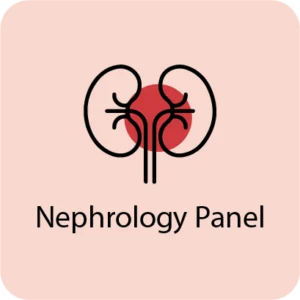Nutrition
Nutrition is known to build the foundation of our well-being and overall health. It provides the essential nutrients that are needed for bodily functions, energy production, and sustaining optimal health. Delve into those intricacies of nutrition through the following categories mentioned below:
Need for Nutrients and Metabolism
Fueling the Body
Nutrients are known to build the blocks of life. They are seen providing those raw materials needed for growth, repair, and energy production. Carbohydrates, fats, proteins, vitamins, and minerals are well essential components that all support various metabolic processes in the body.
- Condition: Inadequate consumption of essential nutrients including proteins, carbohydrates, vitamins, fats, and minerals can all lead to certain malnutrition, impacting overall health and some energy levels.
- Observation: Individuals lacking those essential nutrients might experience some fatigue, impaired immune function, weakness, and delayed wound healing.
Metabolic Machinery
Some of the metabolism encompasses the biochemical processes which shall be well convertible nutrients right into that energy and facilitate cellular functions. A balanced diet shall all ensure the smooth operation of metabolism, optimizing energy production, while supporting those overall health.
- Condition: Certain levels of disruption in those metabolic processes due to inadequate nutrient consumption or metabolic disorders can further lead to metabolic syndrome, diabetes, or obesity.
- Observation: Symptoms might further include elevated blood sugar levels, insulin resistance, some abnormal lipid profiles, and other obesity-related complications.
Body Composition
The Balance of Components
Some of the body composition shall all refer to the proportion of fat, bone, muscle, and other tissues present in the body. While achieving and maintaining a healthy body composition, it is well essential for overall health and well-being.
- Condition: Imbalances in the body composition like excess amount of body fat or insufficient muscle mass. This can enhance the risk of chronic diseases including cardiovascular disease, type 2 diabetes, and metabolic syndrome.
- Observation: Individuals with some unhealthy body composition might all exhibit symptoms like enhanced waist circumference, high body mass index (BMI), and poor physical performance.
Nutritional Influence
Nutrition is known to play a critical role in determining body composition. Some adequate protein consumption shall help in supporting muscle growth and repair. A balanced diet helps regulate fat metabolism and helps in sustaining optimal body weight.
Physical Activity
Fueling Performance
Some physical activity enhances the body’s energy demands. It all needs some adequate nutrition to support that performance and recovery. Some of the carbohydrates do serve as the primary fuel source while performing exercise and being on proteins aids in muscle repair and recovery.
- Condition: Inadequate amount of nutrition right before, during, and post physical activity can lead to condition of fatigue, lowered performance, muscle cramps, and delayed recovery.
- Observation: Some of the athletes and physically active individuals might also experience lowered endurance, increased risk of injury, and reduced strength due to inadequate consumption of nutrients.
Hydration
Proper hydration is much needed for optimizing physical performance and further prevents dehydration. Water is just so important for regulating those body temperature while transporting nutrients, and removing waste products right from those cells.
- Condition: Dehydration can further impair some physical and cognitive performance, which leads to symptoms like dizziness, fatigue, headache, and lowered exercise tolerance.
- Observation: Signs of dehydration shall lead to dark urine, dry mouth, thirst, and lowered sweating during physical activity.
Imbalances and Deficiencies
Consequences of Insufficiency
Some sort of nutritional imbalances and deficiencies can all lead to profound effects on health. Insufficient consumption of those essential nutrients. It might all lead to deficiencies, compromising metabolic functions, immune response, and overall well-being.
- Condition: Nutritional deficiencies can further manifest as specific health issues which shall depend on the deficient nutrient, like iron deficiency anemia, vitamin D deficiency, or iodine deficiency disorders.
- Observation: Some of the symptoms may vary but they can include weakness, fatigue, brittle nails, cognitive impairments, hair loss, and compromised immune function.
Addressing Deficiencies
Identifying and addressing some of the nutritional deficiencies is well crucial for sustaining optimal health. Dietary modifications, supplementation, and other medical interventions might all be needed to correct imbalances and restore nutritional status.
- Condition: Failure to address those nutritional deficiencies promptly can all lead to worsening some of the symptoms. This shall be in account to underlying some of the conditions and enhancing susceptibility to infections and other chronic diseases
- Observation: Without intervention, individuals with some of the nutritional deficiencies might experience persistent symptoms and a decline in overall health
Intolerances and Dysfunctions
Individual Sensitivities
Certain food intolerances and sensitivities occur when the body has issues digesting specific foods or components. Other common intolerances shall also include lactose intolerance, gluten sensitivity, and food allergies.
- Condition: Some of the food intolerances and other sensitivities can lead to conditions like gastrointestinal symptoms, respiratory issues, skin reactions, and systemic inflammation in some of the susceptible individuals.
- Observation: Other common symptoms might include abdominal pain, diarrhea, bloating, skin rashes, fatigue, and nasal congestion shall all follow the consumption of specific foods.
Managing Intolerances
Managing some of the food intolerances involves identifying trigger foods and avoiding or simply minimizing their consumption.
Substituting some of those alternative foods and incorporating other good digestive aids shall all help in alleviating symptoms and enhance its tolerance.
- Condition: Failure to manage food intolerances can eventually lead to some chronic discomfort, lowering the quality of life, and nutritional deficiencies when trigger foods are eliminated without suitable alternatives.
- Observation: Individuals might further continue to experience symptoms despite avoiding those trigger foods, which shall lead to frustration and a negative impact on mental well-being.
Inflammation and Oxidative Stress
Inflammatory Response
An inflammation-like condition is a natural immune response that helps in protecting the body from infection and injury.
However, some chronic inflammation can further contribute to various health issues like cardiovascular disease, autoimmune disorders, and diabetes.
- Condition: Other chronic inflammation is well associated with some of the various health conditions, like rheumatoid arthritis, cardiovascular disease, inflammatory bowel disease, and some cancers.
- Observation: Some of the elevated levels of inflammatory markers, like C-reactive protein (CRP) and another interleukin-6 (IL-6). This shall indicate ongoing inflammation and an increased risk of inflammatory diseases.
Antioxidant Defense
Oxidative stress-like conditions take place when there is an imbalance that lies between free radicals and antioxidants in the body. This shall lead to cellular damage. Antioxidants are found in fruits, vegetables, and some other plant-based foods. It further helps neutralize free radicals and lowers oxidative damage.
- Condition: This kind of oxidative stress shall all result from an imbalance that lies between free radicals and antioxidants. It can further contribute to cellular damage, aging, and the development of other chronic diseases.
- Observation: Biomarkers of oxidative stress, like malondialdehyde (MDA) and other reactive oxygen species (ROS), might all be elevated in individuals with poor antioxidant status and enhanced exposure to environmental toxins.
Nutrition is known to play a fundamental role in supporting overall health and well-being. We do understand the need for nutrients, fueling physical activity, optimizing body composition, and addressing imbalances and deficiencies. You can cultivate a foundation of health and vitality. Embracing a balanced diet, mindful eating habits, and other lifestyle practices shall help in promoting inflammation and oxidative stress. You can thus nourish your bodies and thrive in every aspect of life and we shall help doing so.
Preventive Health
Fortifying the Foundation
- Importance: Preventive health shall all focus on avoiding illness and promoting wellness through lifestyle choices, like nutrition.
- Role: Consuming a balanced diet rich in fruits, vegetables, whole grains, and lean proteins which we provide with essential nutrients and antioxidants. This can strengthen the immune system and lower the risk of chronic diseases like heart disease, diabetes, and cancer.
- Recommendations: One shall encourage individuals to further prioritize nutrient-dense foods, sustaining a healthy weight, while limiting processed foods and sugary beverages. This shall all engage in regular physical activity to support preventive health.
Gut Health
Nurturing the Microbiome
- Importance: The gut microbiome is known to play a crucial role in digestion, immune function, and overall health.
- Role: Probiotic-rich foods including kefir, yogurt, and fermented vegetables, along with those prebiotic fibers found in fruits, vegetables, and whole grains. This shall all promote a diverse and balanced microbiome. Such things shall further support optimal digestion, nutrient absorption, and immune function.
- Recommendations: We shall further emphasize incorporating a variety of probiotic and prebiotic foods into the diet. Do not perform excessive consumption of processed foods and artificial sweeteners, and manage stress to support gut health.
Brain Health
Feeding the Mind
- Importance: They are known to influence cognitive function, mood regulation, and overall brain health.
- Role: Omega-3 fatty acids are found in fatty fish, nuts, and seeds, along with antioxidants like vitamin E. White polyphenols are found in fruits, vegetables, and green tea, supporting brain function and protecting against cognitive decline.
- Recommendations: We further recommend incorporating omega-3-rich foods, antioxidant-rich fruits and vegetables, and brain-boosting nutrients including vitamin B12. This shall folate into the diet to support brain health and cognitive function.
Beauty
Radiating from Within
- Importance: The role they play in skin health, hair growth, and overall appearance.
- Role: Collagen-rich foods including those bone broth, vitamin C-rich fruits, and vegetables. These antioxidant-rich foods including berries and dark leafy greens support skin elasticity, hydration, and a youthful complexion.
- Recommendations: We further encourage some of the individuals to prioritize a diet rich in collagen-boosting. This includes foods, vitamins, antioxidants, and minerals, which shall all go along while staying hydrated. This shall be also about practicing sun protection to support beauty from within.
Kids Health
Building Healthy Foundations
- Importance: Proper consumption of nutri-ful food is essential for children’s growth, development, and overall health.
- Role: A balanced diet that includes a variety of fruits, vegetables, whole grains, lean proteins, and dairy products. It provides essential nutrients like calcium, iron, vitamin D, and omega-3 fatty acids needed for healthy growth and development.
- Recommendations: We emphasize the importance of establishing healthy eating habits from a young age. We offer a wide variety of nutrient-rich foods, limiting sugary snacks and beverages, and encouraging regular physical activity to support kids’ health and well-being.
Cardiac Health
Nourishing the Heart
- Importance: Nutrition shall all play a pivotal role in cardiovascular health, influencing risk factors like blood pressure, cholesterol levels, and inflammation.
- Role: A heart-healthy diet focuses on whole foods, lean proteins, fiber-rich fruits and vegetables, whole grains, and healthy fats. These are found in fatty fish, nuts, and olive oil. These foods help to lower cholesterol, reduce blood pressure, and decrease the risk of heart disease.
- Recommendations: We advocate for adopting a Mediterranean-style diet, which emphasizes plant-based foods, lean proteins, and healthy fats. It shall also minimize processed foods, saturated and trans fats, and added sugars. This dietary pattern supports heart health and reduces the risk of cardiovascular disease.
Lifestyle Health
Sustainable Living
- Importance: Nutrition is an integral part of a healthy lifestyle, contributing to overall well-being and longevity.
- Role: Making mindful food choices, practicing some portion control, staying hydrated, and engaging in regular physical activity are needed components of a healthy lifestyle. These habits support weight management, mood, energy levels, and overall quality of life.
- Recommendations: We encourage individuals to prioritize self-care, practice mindful eating, and engage in regular physical activity. They shall enjoy, get adequate sleep, manage stress, and foster social connections to support a balanced and fulfilling lifestyle.
Sports Health
Fueling Performance
- Importance: Nutrition plays a critical role in athletic performance, and nutrients, while providing the energy, and hydration needed for optimal physical activity and recovery.
- Role: Proper nutrition before, during, and after performing exercises shall help to fuel workouts, optimize performance, and support muscle repair and recovery.
It also includes consuming a balanced mix of proteins, carbohydrates, and fats, staying hydrated, and replenishing electrolytes lost through sweat.
- Recommendations: We guide pre- and post-workout nutrition, hydration strategies, and nutrient timing to help athletes maximize their performance, enhance endurance, and accelerate recovery.
Chronic Relief
Alleviating Discomfort
- Importance: The role they play as a supportive role in managing chronic conditions and alleviating symptoms, promoting comfort and well-being.
- Role: Anti-inflammatory foods, antioxidants, and gut-supportive nutrients can help reduce inflammation, alleviate pain, and improve overall quality of life. It is for those individuals who are living with chronic conditions like arthritis, fibromyalgia, or inflammatory bowel disease.
- Recommendations: We offer personalized nutrition plans tailored to individuals’ specific needs and conditions, emphasizing whole foods, anti-inflammatory ingredients, and gut-friendly nutrients to support symptom management and enhance quality of life.
Mental Health
Nourishing the Mind-Body Connection
- Importance: Eating well influences mental health and emotional well-being, impacting mood, cognition, and stress management.
- Role: Nutrient-dense foods, omega-3 fatty acids, and mood-boosting nutrients like magnesium and zinc support brain health. They also affect neurotransmitter function and mood regulation. A balanced diet that includes fruits, vegetables, whole grains, and lean proteins promotes mental resilience and emotional well-being.
- Recommendations: We guide incorporating brain-boosting nutrients into the diet, practicing mindful eating, and managing stress to support mental health and emotional balance.
Fertility Health
Fostering Fertility
- Importance: It plays a crucial role in reproductive health and fertility, influencing hormone balance, ovulation, and sperm quality.
- Role: Fertility-friendly foods, hormonal-balancing nutrients like folate and zinc, and antioxidant-rich foods support reproductive function and optimize fertility. These include fruits, vegetables, whole grains, lean proteins, and healthy fats, along with adequate hydration and lifestyle factors like weight management and stress reduction.
- Recommendations: We offer personalized nutrition plans tailored to individuals or couples seeking to conceive, focusing on nutrient-dense foods, hormonal support, and lifestyle modifications to enhance fertility and reproductive wellness.
We are dedicated to empowering individuals to prioritize their health and well-being through personalized nutrition guidance. It is evidence-based recommendations and holistic support. Whether you are looking to prevent disease, support specific health concerns, or optimize your overall wellness, we are here to help you achieve your goals and thrive in every aspect of life.
| Categories | Conditions Observed |
|---|---|
| Need for Nutrients and Metabolism | Choline |
| Benefit of Turmeric (Curcumin) | |
| Vitamin A | |
| Vitamin B1 (Thiamine) | |
| B12 vitamin | |
| Absorption of Vitamin B12 (FUT2) | |
| Vitamin B2 | |
| Vitamin B3 (Niacin) | |
| Vitamin B5 (Pantothenic Acid) | |
| Vitamin B6 | |
| Vitamin B7 (Biotin) | |
| Vitamin C | |
| Vitamin D | |
| Vitamin E | |
| Vitamin K | |
| Benefit of Zeaxanthin | |
| Omega 3 | |
| Omega 6 | |
| Omega 9 | |
| Benefit of Betaine | |
| Benefit of Bromelain | |
| Calcium | |
| Copper | |
| Coenzyme Q10 | |
| Iron | |
| Phosphorus | |
| Selenium | |
| Folate | |
| Potassium | |
| Deficiency in Fat Metabolism | |
| Micronutrient Metabolism | |
| Metabolism of Xenobiotics (including caffeine and P-450) | |
| Caffeine Metabolization | |
| Benefit of Probiotics | |
| Lower LDL in Diets Low in Unsaturated Fats | |
| Iodine | |
| Benefit of Melatonin | |
| Body composition | Tendency to Depression |
| Slimming with more protein intake than carbohydrates | |
| Weight Loss with Carbohydrate Restriction | |
| Weight Loss with Calorie Restriction | |
| Slimming with more fiber intake | |
| Difficulty in Maintaining Weight | |
| Thinning with the consumption of complex carbohydrates | |
| Slimming with Fat Reduction | |
| Preference for bitter foods | |
| Preference for sweet foods | |
| Preference for fatty foods | |
| Tendency to Obesity | |
| Tendency to Obesity (monogenic) | |
| Mitochondrial Energy Production | |
| Tendency to Anxiety | |
| Weight gain with saturated fat intake | |
| Physical activity | Physical Resistance |
| Tendency to Fractures | |
| Aerobic Capacity | |
| Muscle Strength | |
| Muscle Mass Gain | |
| Runner with more endurance than speed | |
| Pain Tolerance | |
| Improved insulin sensitivity with exercise. | |
| Imbalances and Deficiencies | Deficiency in the Conversion of T4 to T3 |
| Methylenetetrahydrofolate reductase (MTHFR) deficiency | |
| L-ferritin Deficiency | |
| Tendency to Hyperphagia | |
| Collagen Degradation | |
| Low Ferritin in Men | |
| Low Ferritin in Women | |
| Frutosemia | |
| Galactosemia | |
| Insomnia with Caffeine | |
| Sodium reduction to control hypertension | |
| Homocysteine Accumulation | |
| Platelet Glycoprotein Deficiency IV | |
| ALDH2 Deficiency | |
| Elastin Deficiency | |
| Cholesterol Level (LDL) | |
| Mevalonate Kinase Deficiency (MKD) | |
| Glucose-6-Phosphate Dehydrogenase Deficiency (G6PD) | |
| Growth Hormone Deficiency (GH) | |
| Cholesterol Level (HDL) | |
| Tendency to Hypertriglyceridemia | |
| Response to Antidepressants | |
| Autophagy | |
| Intolerances and Dysfunctions | Hypercholesterolemia (Type B) |
| Hereditary Familial Hypercholesterolemia | |
| Hyperparathyroidism | |
| Hypothyroidism (Goiter) | |
| Type 1 Diabetes | |
| Type 2 Diabetes | |
| Early Type 2 Diabetes | |
| Lower Bone Mineral Density | |
| Cow’s Milk Allergy | |
| Allergy to Egg White | |
| Ulcerative Colitis | |
| Stroke | |
| Acute Myocardial Infarction | |
| Acute Myocardial Infarction (early) | |
| Cardiac Insufficiency | |
| Anorexia Nervosa | |
| Lactose Intolerance | |
| Gluten Intolerance | |
| Colorectal Neoplasia (Meat Consumption) | |
| Irritable Bowel Syndrome | |
| Metabolic Syndrome | |
| Gestational Diabetes | |
| Crohn’s Disease | |
| Gastroesophageal Reflux Disease (GERD) | |
| Inflammatory Bowel Disease (IBD) | |
| Chronic Kidney Disease (CKD) | |
| Autoimmune Thyroid Disease (DTA) | |
| Cystic Fibrosis (CF) | |
| Hemochromatosis | |
| Histamine Intolerance | |
| Allergy to Nuts | |
| Glutaric Aciduria Type I (AG1) | |
| Renal Tubular Acidosis (ATR) | |
| Abetalipoproteinemia (Bassen-Kornzweig syndrome) | |
| Reduction in Factor XII Activity (Coagulation) | |
| Attention Deficit Disorder with Food Dyes | |
| Non-Alcoholic Liver Steatosis | |
| Alzheimer’s Disease | |
| Parkinson’s Disease | |
| Ankylosing Spondylitis | |
| Peanut Allergy | |
| Alcohol Intolerance | |
| Glutamate Intolerance | |
| Mercury Intolerance | |
| Breast Neoplasm | |
| Prostate Neoplasm | |
| Lung Neoplasm | |
| Inflammation and Oxidative Stress | Need for Detoxification |
| Tendency to Oxidative Stress | |
| IL-10 | |
| IL-1β | |
| IL-6 | |
| IL-8 | |
| IFN-γ | |
| TNF |
How does genetics influence nutritional requirements and metabolism?
Genetics can influence nutritional requirements and metabolism by affecting factors such as nutrient absorption, utilization, metabolism, and susceptibility to certain dietary-related conditions or deficiencies.
What is genetic testing for nutrition, and how does it work?
Genetic testing for nutrition involves analyzing an individual’s DNA to identify genetic variations associated with nutrient metabolism, dietary preferences, food intolerances, and potential risk factors for nutrition-related conditions.
Who should consider undergoing genetic testing for nutrition?
Individuals with specific dietary concerns, food intolerances, chronic health conditions affected by diet, or those interested in optimizing their nutrition. This might consider genetic testing to gain insights into their genetic predispositions and nutritional needs.
What specific genetic markers or genes does the genetic testing panel for nutrition analyze?
The genetic testing panel for nutrition may analyze genes related to nutrient metabolism (e.g., vitamin D receptor gene), taste preferences (e.g., TAS2R38 gene), food intolerances (e.g., lactose intolerance genes), and susceptibility to conditions like obesity or diabetes.
What are the potential implications of genetic testing for nutrition on overall health and wellness?
The potential implications of genetic testing for nutrition include personalized dietary recommendations, optimized nutrient intake, improved management of nutrition-related conditions, enhanced athletic performance, and reduced risk of chronic diseases.















































































